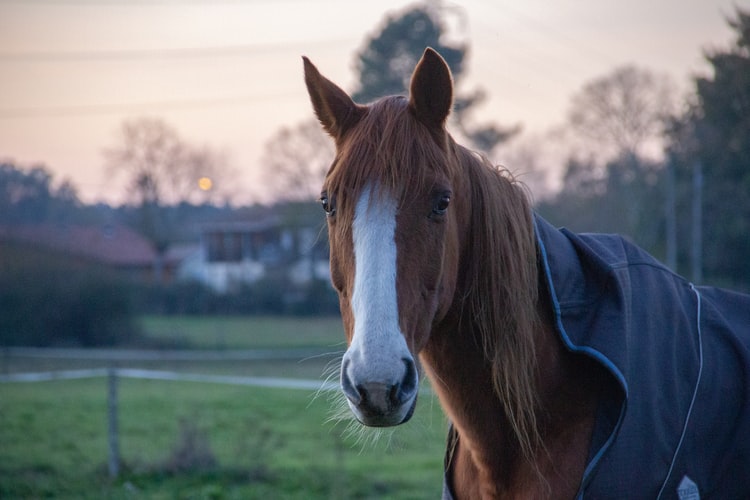Whether you run jackpots on Friday nights or float around a dressage ring, it’s time for your most trusted, seasoned campaigners to have some downtime, especially if equine osteoarthritis is a factor.
Maybe you’ve been coping with equine osteoarthritis for years, or perhaps this is the first time your horse comes out of his stall stiff and cranky. Either way, it’s time for many equestrians to evaluate their horses and launch an arthritis treatment regimen.
Welcome to the seventh article in the Trails West Trailers Healthy Hauling blog series. While it’s not directly caused by hauling in a horse trailer, equine osteoarthritis (or “arthritis”) is an eventuality for almost all competitive equines. Today, we’ll talk about symptoms, suggest treatments, and provide some hauling considerations for arthritic horses.
Let’s start with an overview of the condition.
What Is Equine Osteoarthritis (OA)?
Osteoarthritis means joint inflammation. We used to call it arthritis or degenerative joint disease. Several types of arthritis exist. Know that:
- OA can affect any joint where two cartilage-covered bones meet.
- In sport horses, OA usually affects joints in the limbs: hocks, knees, fetlocks, and stifles.
- Cold temperatures, reduced workloads, and limited turnout time all aggravate OA.
Signs of Arthritis in Horses
- Joint heat
- Swelling at the joint
- Pain or lameness
- Crepitus — popping, grinding, and crackling sounds
- Stiffness of movement and performance reluctance — like a refusal to offer deep collection or resistance to a certain lead under saddle
While equine osteoarthritis is not curable or reversible, the good news is that it can be managed! Your first step is a call to the vet, and you may need to spring for radiographs or X-rays. Once you have a better understanding of the joints involved, you can keep your horse comfortable this winter. Your vet may suggest a regimen of Equioxx (it’s easier on the gut than “bute” for long term use) or joint injections.
But many horse owners find they can manage mild-to-moderate cases of OA without a prescription.
Managing Osteoarthritis In Competition Horses
We’ve mentioned this already, but it bears repeating: cold weather and reduced exercise make arthritis worse. So keep your horse warmer, and offer more light exercise opportunities. You should definitely:
- Blanket your horse this winter. We know horses are tough, outdoor animals, but this is a special situation.
- Double your warm-up time when you ride. Spend at least ten minutes at a walk before getting to work.
- Practice some stretches in and out of the saddle. Just go gently.
- Add a joint supplement to his diet. They work wonders!
- Keep him on a meticulous schedule with the farrier.
Finally, adjust your riding for the winter. Your seasoned showhorse, reiner, or speed event horse knows his job. So skip the sliding stops, headsets, and perfect reinbacks. Give his mind and body a break with some trail rides, or goof off with friends! Cherish these winter rides!
OA is not curable. Eventually, you’ll need to haul a horse with severe arthritis.
Hauling An Arthritic Horse In A Horse Trailer
You’ll want to check with your vet before taking any long hauls with a severely arthritic horse. For mild or moderate cases, here’s what to consider:
- Use rubber mats on the floor of the horse trailer and then a layer of wood shavings.
- “Bute” him for a few days before a long haul if he isn’t on other prescriptions — as long as your competitive organization accepts bute.
- Wrap his legs (we’ve blogged more about this too).
- Tie him next to easy haulers in the trailer, or haul him alone so that he doesn’t get kicked or bumped.
- Choose a route that’s easy on your horse. The fewer hard stops and turns, the better.
The team here at Trails West Trailers knows arthritic horses are still precious. The very best school horses and horse show “packers” often have arthritis. These are the bombproof, uber-broke wonders we trust to pack our kids around the barrels or over fences. Your arthritic companion will become the horse you put your guests on, the one you trust with your grandchild.
In some ways, he’s worth much more than a truly sound horse, and you’ll be hauling him everywhere. Just be mindful of how he spends his winters, and you’ll have many more years of fun.
If you’d like to learn more about our horse trailers and livestock trailers, contact us.


